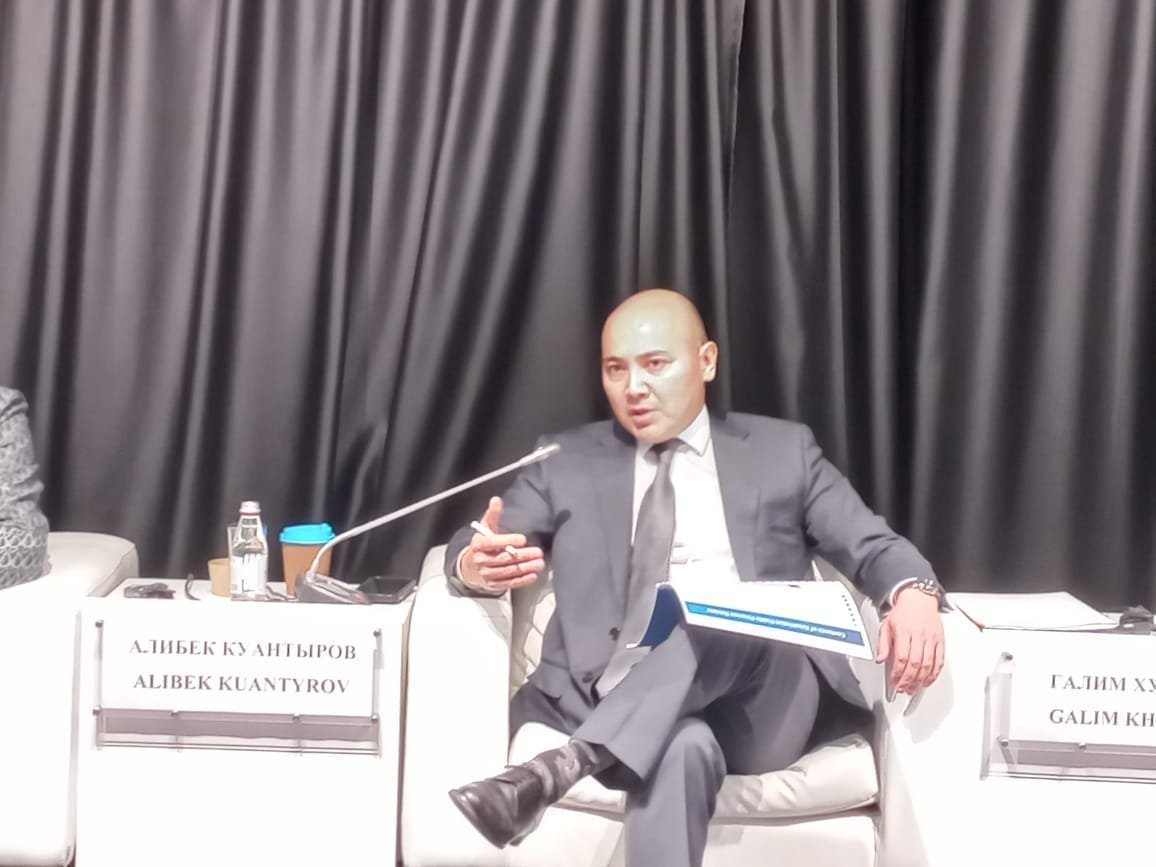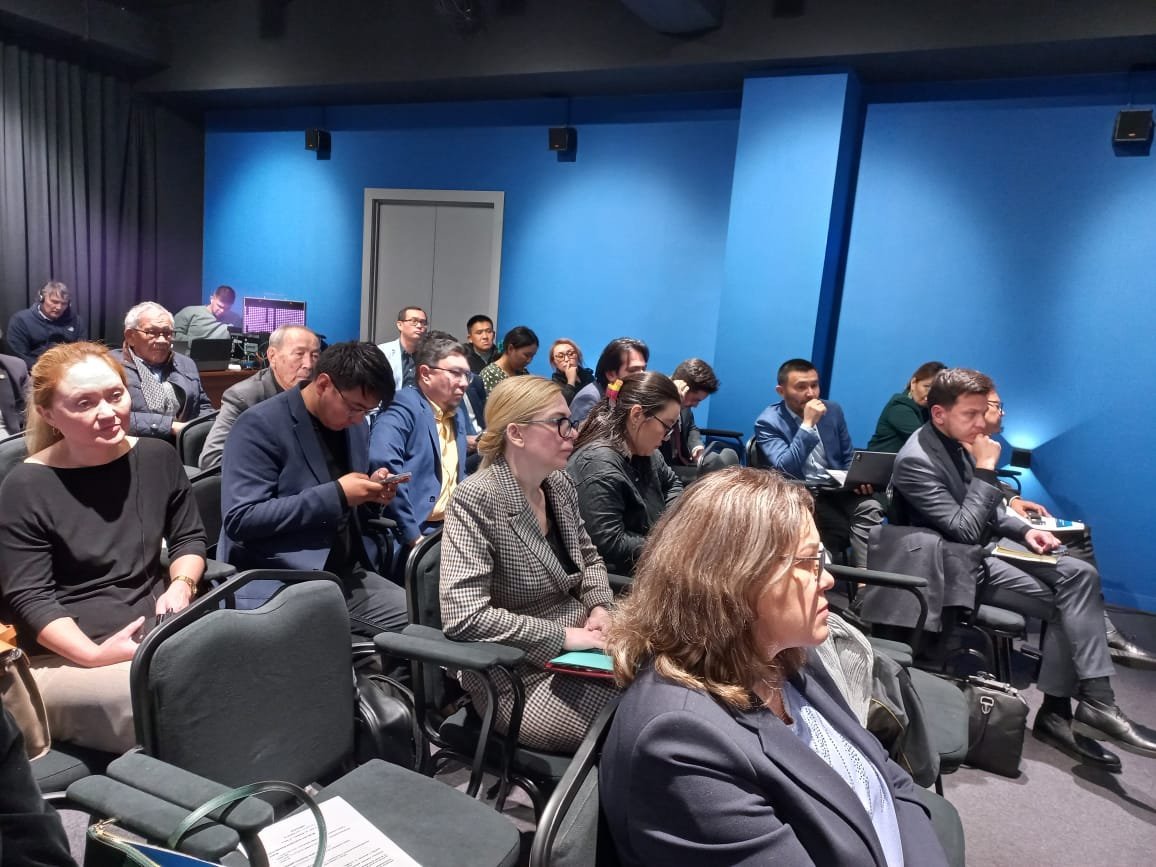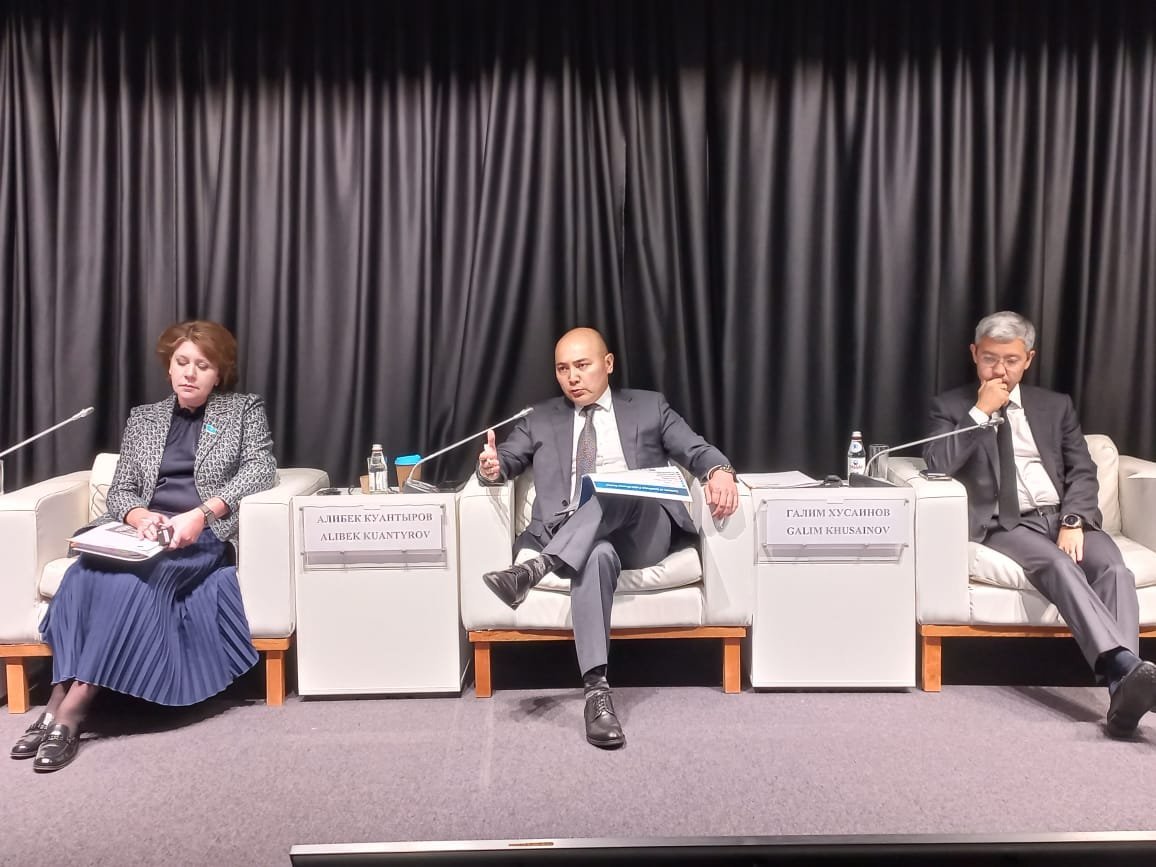Expenses up to 50 Trillion KZT: Experts Discussed State Budget's Revenues
 Coverphoto: Orda.kz
Coverphoto: Orda.kz
Kazakhstan will have to improve its public finance policy. The Parliament has already received a new Budget Code. After that, it is planned to review and improve the tax legislation. The flaws in the financial system are indicated by the factors of budget deficit and the discrepancy between the country's revenues and its expenditures, which carry certain risks. Deputies, state bodies and experts discussed what Kazakhstan should do. An Orda correspondent listened to the opinions of experts.
Where Does Budget Money Go?
Treasury expenditures in Kazakhstan do not correspond to income. The country desires more funds than the budget can provide. The representatives of the World Bank in Kazakhstan explained from where the discrepancies arose. According to them, external and internal factors have influenced this.
 Photo: Orda.kz
Photo: Orda.kz
The country is experiencing a lot of external volatility associated with rising global interest rates, fluctuations in oil prices, disruptions in supply chains and higher food prices. At the same time, over the past 20 years, non–oil revenues in Kazakhstan have remained unchanged, says Samsu Rahardja, senior economist at the World Bank.
Simply put, Kazakhstan's income streams have remained at the same level in contrast to growing needs, i.g. for the population's social needs. A lot of money has also been spent on aiding banks and expenses of quasi-public sector companies. Experts called the effectiveness of the latter questionable, as there is no proper control over the expenditure of funds in this area. Its effectiveness is also small and sometimes even unprofitable. The Ministry of National Economy acknowledges this fact. They are currently considering a mechanism for monitoring expenditures in this area, which make up a significant share of the budget – 2% of GDP.
The largest payer of dividends is Samruk-Kazyna. Our task is to increase the efficiency of quasi-public sector companies so that they pay dividends and are accountable. They need to be transferred to the private sphere. But, on the other hand, there are strategic enterprises that cannot be transferred to a competitive environment, for example, Kazakhstan Temir Joly. There are companies that have a purely social function without earning money. However, today we are considering the consolidated budget of the entire quasi-public sector and the transparency of spending. When protecting the budget, representatives of the quasi–public sector will also report, as well as officials, said Alibek Kuantyrov, Minister of National Economy.
 Photo: Orda.kz
Photo: Orda.kzThere is a proposal to strengthen measures of efficiency and supervision in the activities of republican extra-budgetary funds, such as the UAPF, the FSMS and the National Fund.
The effectiveness of these funds should be supervised by the public. Including the National Fund, as it has several functions, one of which is savings. Now there is a new program – the "National Fund for Children", which is included in the Budget Code. It will attract public attention to the profile fund. People will have questions about the quality of asset management of the National Fund, and its effectiveness will increase, Kuantyrov believes.
Three Regions
According to the minister, the demand for public money today exceeds the capabilities of the treasury by several times. If the budget is designed for 22 trillion tenge, then an application for expenses is submitted for 50 trillion.
Over the last year alone, the application for the budget program of the DKB (business road map - Ed.) and OKB (regional clinics - Ed.) has grown by 50%. 266 billion have been spent in six months. But business needs to be helped, GDP growth depends on it. It is also necessary to leave assistance to vulnerable segments of the population. Low-profit agriculture is also important to finance because it is a matter of food security. Of course, the issue of the quality of akimats’ administration should be raised. The southern region is two-thirds dependent on transfers. Turkestan, Jambyl and Ulytau regions are almost 90% dependent on the budget, the minister says.
The deputies propose to revise and increase the productivity of expenditures, while simultaneously improving budget discipline.
"It is necessary that these expenses be stimulating for citizens, go to development. And, of course, there are many questions about state bodies’ budgetary discipline that do not fulfill the budget, delay projects. Discipline is the budget rules that we set, but we cannot fully implement. We need to set such a general framework for ourselves so that there is no need to violate them," said Tatyana Savelyeva, a deputy of the Majilis of the Parliament.
Unlike expenses, budget revenues have not been growing for a long time. Out of 20 regions, there are only three "donor" regions (Astana, Almaty and Atyrau region).
 Photo: Orda.kz
Photo: Orda.kz
Ways to Increase Budget Revenues
The experts of the World Bank suggest that Kazakhstan consider a more progressive state revenue policy, proposing a gradual introduction.
This involves reducing tax benefits, optimizing various tax regimes and gradually introducing a progressive income tax scheme, which will improve revenue collection and orient fiscal policy to support the socially-vulnerable groups, World Bank economist Samsu Rahardja recommended.
According to officials, diversifying the economy is long overdue, as money from non-resource sectors would more actively flow to the budget.
One of the options for replenishing the treasury is to increase the VAT rate. We are actively discussing this now. So, we will annually attract at least two trillion tenge to cover our expenses. It is assumed that this will have a one-time impact on inflation during the year. Then the economy will adapt, says Alibek Kuantyrov, Minister of National Economy.
 Photo: Orda.kz
Photo: Orda.kzAccording to experts, in order to increase tax revenues, it is important to stimulate labor productivity and support highly profitable enterprises.
Today we are stimulating often unstable enterprises. And when they get off this needle, it is difficult for them to adapt to a market economy and they become uncompetitive. We need to review these development programs, which are aimed at increasing the number of business enterprises because with an increase in labor productivity, we will be able to raise the incomes of enterprises. They are paid with profit and income in the form of wages, Galim Khusainov, an expert in economics, said.
No Fruit to Bear
Meanwhile, financial experts propose to revise tax benefits instead of increasing VAT. According to various estimates, the effect of this could be up to 6 trillion tenge. It is recommended to leave tax preferences for those companies that are focused not on the export of raw materials, but on the export of high-tech finished product.
According to the report of the National Fund, in the first half of this year, subsoil users transferred 2.8 trillion tenge to the budget. This is less than 10%, if we take into account the amount of profit from oil production. To check all this, I opened the website of the company "Aktobemunaygas" – the section "Reporting for 2022". Their revenue is 582 billion tenge, and only 2 billion 400 million tenge has been transferred for CIT (corporate income tax - Ed.). It turns out that our oil industries pay less than sole proprietors. Even in Indonesia, oil money remains 100% in the country, and in Qatar oil industries give 40%. If our oil industries paid at least 20%, then VAT could be safely pulled back, said Marat Abdurakhmanov, an expert on economics.
According to the World Bank review, Kazakhstan has budget reserves formed thanks to oil revenues. However, the fiscal system is in urgent need of improvement. According to the report of the Ministry of Finance, a budget deficit of 2 trillion tenge was recorded in the first half of 2023.
Economists say that in case of a large-scale emergency or necessity, Kazakhstan may face the problem of lack of finances. Therefore, it is necessary to increase tax revenues to the budget, which will affect the growth of wages and the population's standard of living.
Original Author: Rayana Batyr
DISCLAIMER: This is a translated piece. The text has been modified, the content is the same. Please refer to the original piece in Russian for accuracy.
Latest news
- Timur Kulibayev vs. New Kazakhstan: Oligarch Defends His Assets
- MP supported Imam's Statements About Kazakh Traditions
- Altyn Adam: How Filmmakers Quarreled Over Cartoon About Scythian Warrior
- "No Chance": Russian Deserters' Stories in Kazakhstan
- National Fund Earns As Much As It Spends
- What is Going on with FPL Head's Recent Appointment?
- Stati Case: Victory for Kazakhstan?
- Qataris to Spend $3.5 Billion on Construction of Plants in Kashagan
- Oil Quotas: a Blessing or a Curse for Kazakhstan?
- Plant in Kazakhstan: Swiss Investor Purchased, Legal Battle Follows
- Situation with Russian Securities in Kazakhstan Explained
- Uranium Mining Tax in Kazakhstan to Change Starting in 2025
- Chinese Oil Giant to Build Wind Farm in Kazakhstan
- Expert Explains Toqayev Greeting Xi Jinping in Particular Way
- Scandal around "Aria-Zhana Astana", Controlled by Satybaldy, Not Subsiding
- SCO Summit in Astana: What to Expect?
- Who Was Oppositionist Aidos Sadykov?
- KNB Agent Orik VS Financial Police Agent Sanych
- Nazarbayev's Relatives on Trial: Systemic Purge or Political Games?
- Fire in Greece: Luxury Yacht, Kazakhstani Oligarchs' Vacation Scandal

